第107章
"I feel astonishingly well, considering the sharpness of the attack,"her patient said."Our little talk has quite stimulated me.When I go out,"--there was a gleam in the eye he raised to hers,--" I am going to call at Temple Barholm.""I knowed tha would," she commented with maternal familiarity."Idunnot believe tha could keep away."
And through the rest of the morning, as he sat and gazed into the fire, she observed that he several times chuckled gently and rubbed his delicate, chill, swollen knuckled hands together.
A few weeks later there were some warm days, and his Grace chose to go out in his pony carriage.Much as he detested the suggestion of "the aunt in the Bath chair," he had decided that he found the low, informal vehicle more entertaining than a more imposing one, and the desperation of his desire to be entertained can be comprehended only by those who have known its parallel.If he was not in some way amused, he found himself whirling, with rheumatic gout and seventy years, among recollections of vivid pictures better hung in galleries with closed doors.It was always possible to stop the pony carriage to look at views--bits of landscape caught at by vision through trees or under their spreading branches, or at the end of little green-hedged lanes apparently adorned with cottages, or farm-houses with ricks and barn-yards and pig-pens designed for the benefit of Morland and other painters of rusticity.He could also slacken the pony's pace and draw up by roadsides where solitary men sat by piles of stone, which they broke at leisure with hammers as though they were cracking nuts.He had spent many an agreeable half-hour in talk with a road-mender who could be led into conversation and was left elated by an extra shilling.As in years long past he had sat under chestnut-trees in the Apennines and shared the black bread and sour wine of a peasant, so in these days he frequently would have been glad to sit under a hedge and eat bread and cheese with a good fellow who did not know him and whose summing up of the domestic habits and needs of "th' workin' mon" or the amiabilities or degeneracies of the gentry would be expressed, figuratively speaking, in thoughts and words of one syllable.The pony, however, could not take him very far afield, and one could not lunch on the grass with a stone-breaker well within reach of one's own castle without an air of eccentricity which he no more chose to assume than he would have chosen to wear long hair and a flowing necktie.
Also, rheumatic gout had not hovered about the days in the Apennines.
He did not, it might be remarked, desire to enter into conversation with his humble fellow-man from altruistic motives.He did it because there was always a chance more or less that he would be amused.He might hear of little tragedies or comedies,-- he much preferred the comedies,--and he often learned new words or phrases of dialect interestingly allied to pure Anglo-Saxon.When this last occurred, he entered them in a notebook he kept in his library.He sometimes pretended to himself that he was going to write a book on dialects;but he knew that he was a dilettante sort of creature and would really never do it.The pretense, however, was a sort of asset.In dire moments during rains or foggy weather when he felt twinges and had read till his head ached, he had wished that he had not eaten all his cake at the first course of life's feast, that he had formed a habit or so which might have survived and helped him to eke out even an easy-chair existence through the last courses.He did not find consolation in the use of the palliative adjective as applied to himself.A neatly cynical sense of humor prevented it.He knew he had always been an entirely selfish man and that he was entirely selfish still, and was not revoltingly fretful and domineering only because he was constitutionally unirritable.
He was, however, amiably obstinate, and was accustomed to getting his own way in most things.On this day of his outing he insisted on driving himself in the face of arguments to the contrary.He was so fixed in his intention that his daughters and Mrs.Braddle were obliged to admit themselves overpowered.
"Nonsense! Nonsense!" he protested when they besought him to allow himself to be driven by a groom."The pony is a fat thing only suited to a Bath chair.He does not need driving.He doesn't go when he is driven.He frequently lies down and puts his cheek on his hand and goes to sleep, and I am obliged to wait until he wakes up.""But, papa, dear," Lady Edith said, "your poor hands are not very strong.And he might run away and kill you.Please do be reasonable!""My dear girl," he answered, "if he runs, I shall run after him and kill him when I catch him.George," he called to the groom holding the plump pony's head, "tell her ladyship what this little beast's name is.""The Indolent Apprentice, your Grace," the groom answered, touching his hat and suppressing a grin.
"I called him that a month ago," said the duke."Hogarth would have depicted all sorts of evil ends for him.Three weeks since, when I was in bed being fed by Braddle with a spoon, I could have outrun him myself.Let George follow me on a horse if you like, but he must keep out of my sight.Half a mile behind will do."He got into the phaeton, concealing his twinges with determination, and drove down the avenue with a fine air, sitting erect and smiling.
Indoor existence had become unendurable, and the spring was filling the woods.